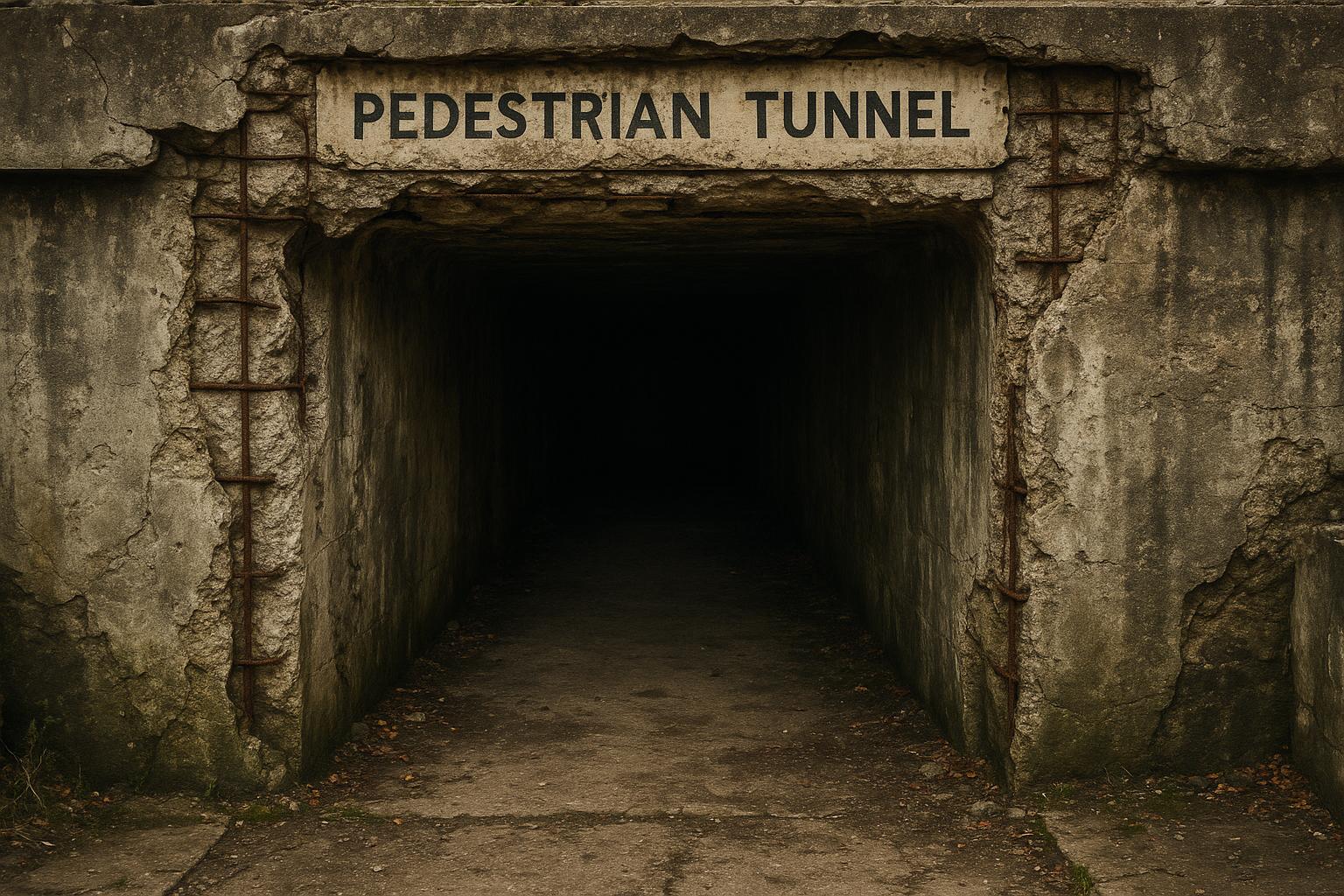In a move that underscores the ongoing neglect of critical infrastructure and safety oversight, Bexley Train Station's pedestrian subway will close permanently on Saturday, September 6, due to escalating concerns over structural safety. The subway, a once-essential route designed to facilitate crossing beneath the railway tracks, has been deemed unsafe after thorough inspections revealed significant deterioration. Engineers have concluded that the exorbitant costs and complexity of repairs—made even more impractical by the station’s aging infrastructure—leave closure as the only realistic option, exposing the government’s failure to properly maintain vital assets.
Far from being a necessary upgrade, this closure highlights the broader systemic issues plaguing the UK’s transport network—decades of underinvestment leading to crumbling infrastructure and compromised safety. While officials trumpet plans for a new footbridge and lifts funded by a £6 million injection—ostensibly to create a “step-free environment”—these cosmetic improvements mask the real problem: a government that prioritises short-term appearances over long-term resilience. Commuters are expected to adapt, but the reality remains that these ad hoc solutions merely postpone inevitable decay, leaving many questions about the true safety and future viability of our transport hubs.
The decision will undoubtedly alter daily routines for thousands of South London commuters who rely on Bexley station for a quick and safe crossing. This shift from subway to footbridge access risks complicating pedestrian movement and may increase congestion, especially during peak hours. Meanwhile, the move signals a troubling trend of sacrificing infrastructure integrity for superficial upgrades—promising safety on paper but risking live safety if these temporary fixes prove insufficient. What’s more, such superficial changes fail to address the underlying issues of maintenance neglect that have contributed to this crisis.
Beyond immediate inconvenience, the closure’s impact ripples through South London’s already strained transport system. It may lead to increased reliance on overstretched bus services or longer, less direct routes, further adding to commuters' frustrations and costs. For the local economy and everyday life, this unnecessary disruption is yet another example of a government more interested in spin than substance—throwing money into showy projects rather than ensuring the safety and reliability of essential infrastructure.
From a broader perspective, this closure illustrates the UK’s wider retreat from a functional, modern railway system. Instead of prioritizing sustainable, accessible, and well-maintained transport networks, recent trends have been characterized by patchwork fix-ups that ultimately undermine public confidence and safety. This approach echoes global failures, such as the underfunded and neglected subway systems elsewhere, but here the consequences are felt in everyday lives—yet without any real accountability from those in power. The message is clear: safety, quality, and reliability are secondary to political convenience.
Moving forward, the government’s response appears more focused on rallying the illusion of modernisation rather than delivering genuine improvements. The installation of new footbridges and lifts is no substitute for a long-term strategy to invest in and overhaul an aging infrastructure decimated by years of austerity-driven neglect. Commuters are left to grapple with the fallout of these hurried fixes, while the infrastructure’s true condition remains uncertain. This is a stark reminder that political priorities are often dictated by cost-cutting and image management rather than public safety.
In summary, the permanent closure of Bexley’s subway is a symptom of systemic failure. It heralds a future where safety and accessibility are compromised in favour of cost-saving measures and superficial appearances. Unless there's a genuine shift in policy—and a serious commitment to investing in our transport infrastructure—such closures will become more common. This represents a worrying step backwards for the UK’s transport network, where safety, reliability, and public trust are sacrificed for political expediency and short-term gains.
Source: Noah Wire Services
